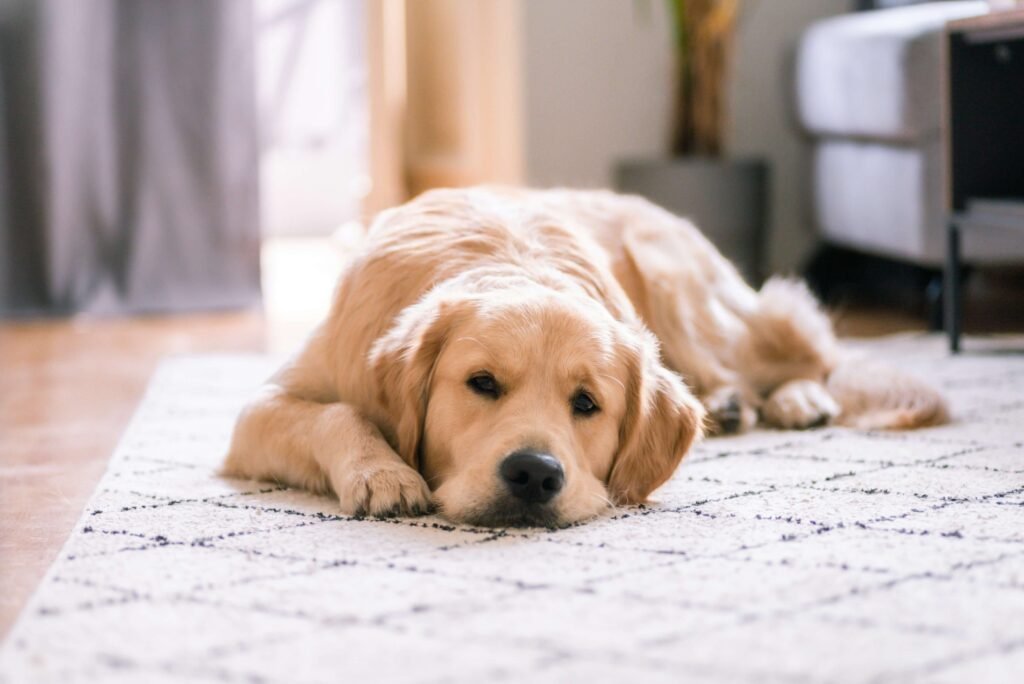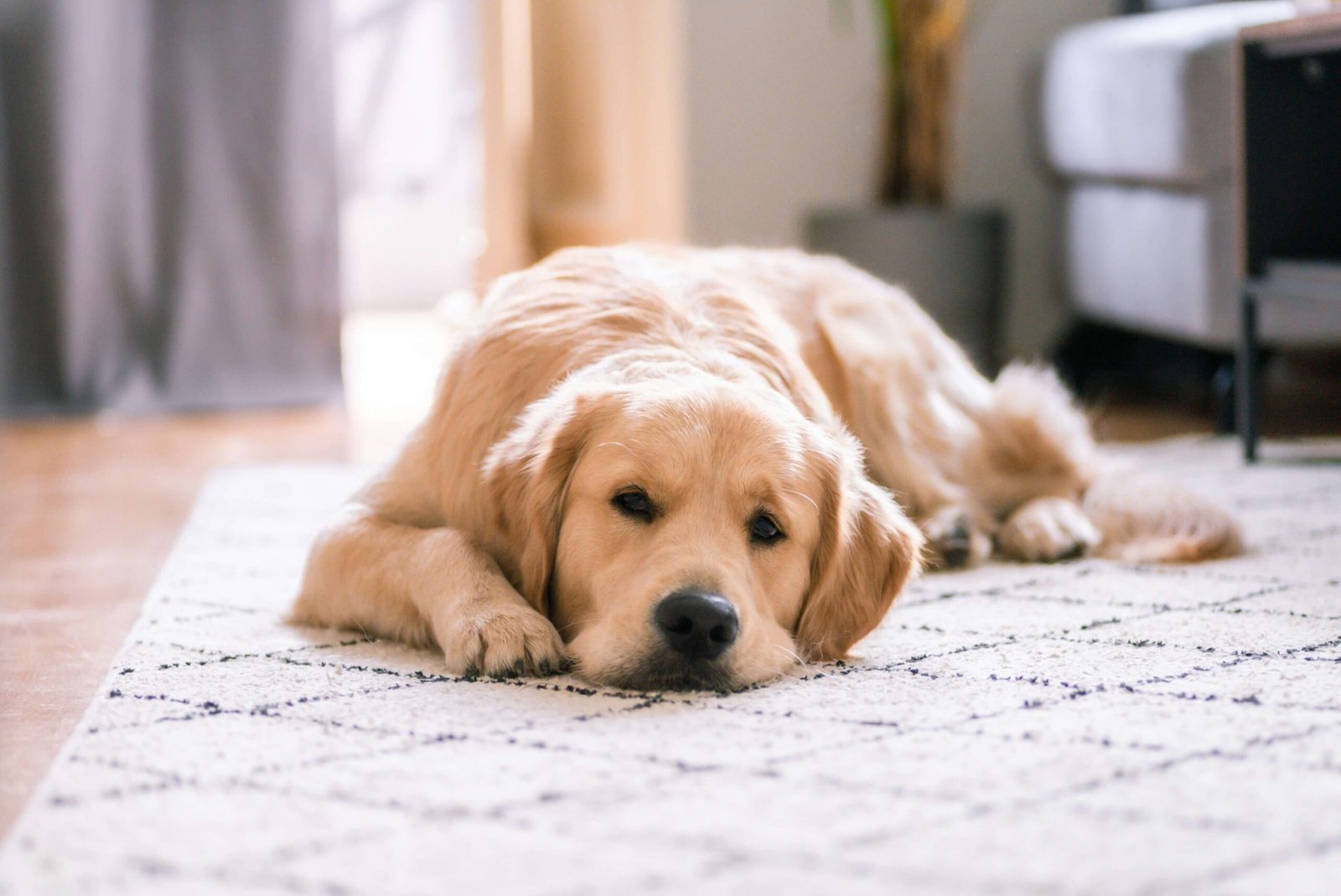Why Is My Male Dog Peeing on My Bed All of a Sudden?
Discovering that your male dog has peed on your bed can be both frustrating and confusing, especially if this behavior is new. Dogs are generally clean animals, so when they suddenly start marking or eliminating in inappropriate places like your bed, it’s often a sign that something is amiss. Whether it’s due to medical issues, behavioral changes, or environmental factors, understanding the root cause is key to addressing the problem effectively. In this blog post, we’ll explore the possible reasons behind this behavior, how to identify triggers, and what steps you can take to stop it. With patience and the right approach, you can help your furry friend return to their usual habits while protecting your bedding from future accidents.
Common Reasons for Sudden Bed-Peeing Behavior
There are several potential explanations for why your male dog might suddenly start peeing on your bed. Identifying the underlying cause is crucial for finding an effective solution. Here are some common reasons:
Territorial marking : Intact male dogs may mark their territory with urine, especially if they feel the need to assert dominance.
Stress or anxiety : Changes in routine, new family members, or loud noises can trigger stress-related behaviors like peeing indoors.
Medical issues : Conditions such as urinary tract infections (UTIs), bladder stones, or kidney problems can lead to accidents.
Age-related incontinence : Older dogs may struggle with bladder control due to weakening muscles or cognitive decline.
Attention-seeking behavior : If your dog feels neglected or wants attention, they may resort to inappropriate elimination.
By considering these possibilities, you can narrow down the cause and take appropriate action to address the issue.
How to Identify the Cause of Your Dog’s Behavior
Determining why your dog is peeing on your bed requires careful observation and evaluation. Here are some steps to help you pinpoint the underlying reason:
Observe patterns : Take note of when the behavior occurs—whether during specific times of day, after certain events, or around particular people.
Check for health issues : Schedule a vet visit to rule out medical conditions like UTIs, diabetes, or hormonal imbalances.
Assess recent changes : Consider any recent changes in your household, such as moving homes, introducing a new pet, or altering routines.
Monitor interactions : Watch how your dog interacts with other pets or family members to see if there’s tension or competition.
Look for signs of anxiety : Pay attention to body language, such as panting, pacing, or hiding, which could indicate stress.
Once you’ve gathered enough information, you’ll be better equipped to address the root cause of your dog’s sudden bed-peeing behavior.
Check this guide 👉Why Does My Dog Pee on My Other Dog? Best 7 Behavior Tips!
Check this guide 👉Why Is My Dog Peeing in the Crate? Best 7 Behavior Tips!
Check this guide 👉Understanding Dog Peeing in Sleep: Best 7 Expert Tips!

Behavioral Causes | Medical Causes |
|---|---|
Territorial marking | Urinary tract infection (UTI) |
Stress or anxiety | Bladder stones |
Attention-seeking behavior | Kidney disease |
Reaction to new pets or family | Hormonal imbalance |
Separation anxiety | Age-related incontinence |
Steps to Address the Problem
Once you’ve identified the cause of your dog’s behavior, it’s time to take action. Here are some practical steps to help resolve the issue and prevent future incidents:
Neuter your dog : If territorial marking is the issue, neutering can reduce hormone-driven behaviors like spraying.
Create a calming environment : Use soothing music, pheromone diffusers, or comfortable spaces to alleviate stress.
Establish a consistent routine : Stick to regular feeding, walking, and bathroom schedules to provide structure and predictability.
Clean the area thoroughly : Use enzymatic cleaners to remove all traces of urine odor, discouraging repeat offenses.
Provide positive reinforcement : Reward your dog for eliminating in the correct spot to reinforce good behavior.
By implementing these strategies, you can guide your dog back to appropriate elimination habits while strengthening your bond.
Preventing Future Accidents on Your Bed
Prevention is key to ensuring your dog doesn’t develop a habit of peeing on your bed. Here are some proactive measures to safeguard your bedding and maintain harmony at home:
Limit access to your bed : Keep your bedroom door closed or use baby gates to prevent unsupervised access.
Increase exercise and mental stimulation : A tired dog is less likely to engage in destructive or attention-seeking behaviors.
Address separation anxiety : Gradually desensitize your dog to being alone through training and comforting routines.
Regular vet check-ups : Stay on top of your dog’s health to catch and treat potential issues early.
Supervise closely during high-risk times : Keep an eye on your dog during periods of stress or transition to prevent accidents.
By taking these preventive steps, you can minimize the likelihood of your male dog peeing on your bed again.
Signs Your Dog May Be Stressed or Anxious
If your male dog is suddenly peeing on your bed, stress or anxiety could be the culprit. Dogs often express their emotional state through changes in behavior, and recognizing signs of distress can help you address the issue effectively. Here are some common indicators of stress or anxiety in dogs:
Excessive panting or drooling : These physical responses often signal discomfort or unease.
Pacing or restlessness : Dogs may move around aimlessly when they’re feeling anxious.
Destructive chewing or scratching : Anxiety can lead to destructive behaviors as a coping mechanism.
Hiding or avoiding interaction : A stressed dog may seek solitude to escape perceived threats.
Changes in appetite : Some dogs eat less or refuse food altogether when they’re stressed.
By identifying these signs early, you can take steps to calm your dog and reduce their anxiety, which may also stop the unwanted bed-peeing behavior.
Training Techniques to Redirect Your Dog’s Behavior
Training plays a vital role in correcting inappropriate elimination habits and encouraging better choices. With consistent effort and positive reinforcement, you can teach your dog where and when it’s appropriate to relieve themselves. Here are some effective training techniques:
Crate training : Using a crate can help establish boundaries and prevent access to off-limits areas like your bed.
Scheduled bathroom breaks : Take your dog outside at regular intervals to reinforce good habits.
Reward-based training : Offer treats, praise, or toys immediately after they eliminate in the correct spot.
Interrupt and redirect : If you catch your dog mid-accident, calmly interrupt them and guide them to the proper location.
Consistency is key : Stick to the same commands and routines to avoid confusing your dog during training.
With patience and persistence, these techniques can help reshape your dog’s behavior and restore harmony in your home.
How to Create a Stress-Free Environment for Your Dog
A calm and supportive environment can go a long way in preventing unwanted behaviors like peeing on your bed. By making adjustments to your home and routine, you can help your dog feel more secure and relaxed. Here are some ways to create a stress-free space for your furry friend:
Designate a safe zone : Provide a cozy corner with their bed, toys, and familiar scents where they can retreat when overwhelmed.
Use calming aids : Products like pheromone diffusers or calming sprays can help soothe anxious dogs.
Maintain a predictable schedule : Dogs thrive on routine, so keep feeding, walking, and playtimes consistent.
Limit exposure to triggers : Identify and minimize exposure to loud noises, unfamiliar guests, or other stressors.
Spend quality time together : Strengthen your bond through interactive play, grooming, or cuddling sessions.
By fostering a peaceful and predictable environment, you’ll not only reduce stress but also encourage better behavior from your dog over time.
FAQ
Why does my neutered dog still pee on my bed?
Neutered dogs may still exhibit marking behavior due to stress, anxiety, or territorial instincts.
Could diet affect my dog’s bathroom habits?
Yes, certain foods or excessive water intake can increase urine production and lead to accidents.
How do I know if my dog has a UTI?
Symptoms include frequent urination, straining to pee, blood in urine, or licking the genital area excessively.
Should I punish my dog for peeing on the bed?
No, punishment can increase anxiety and worsen the behavior. Focus on positive reinforcement instead.
Can older dogs develop incontinence?
Yes, senior dogs may experience weakened bladder control due to age-related changes or health conditions.
Restoring Harmony in Your Home
Dealing with a male dog who suddenly starts peeing on your bed can be challenging, but it’s important to approach the situation with patience and understanding. By identifying the cause—whether behavioral or medical—and taking appropriate steps to address it, you can restore peace and cleanliness to your home. Remember, your dog isn’t acting out of spite; they’re communicating a need or discomfort. With consistent training, proper care, and plenty of love, you can overcome this issue and strengthen the bond you share with your furry companion. Your bed—and your relationship—will thank you for it!
Pemphigus Erythematosus in Cats: Best 7 Expert Tips! – Learn to recognize symptoms, manage flare-ups, and improve your cat’s quality of life.
Pemphigus Erythematosus in Dogs: Best 7 Expert Tips! – Discover causes, symptoms, and treatment options to manage this autoimmune skin condition effectively.
Cat Tympanic Membrane: Best 7 Expert Tips! – Learn how to protect your cat’s eardrum, spot issues early, and ensure lifelong auditory health.
Dog Tympanic Membrane: Best 7 Expert Tips! – Learn how to protect your dog’s eardrum, spot issues early, and ensure lifelong ear health with expert advice.





